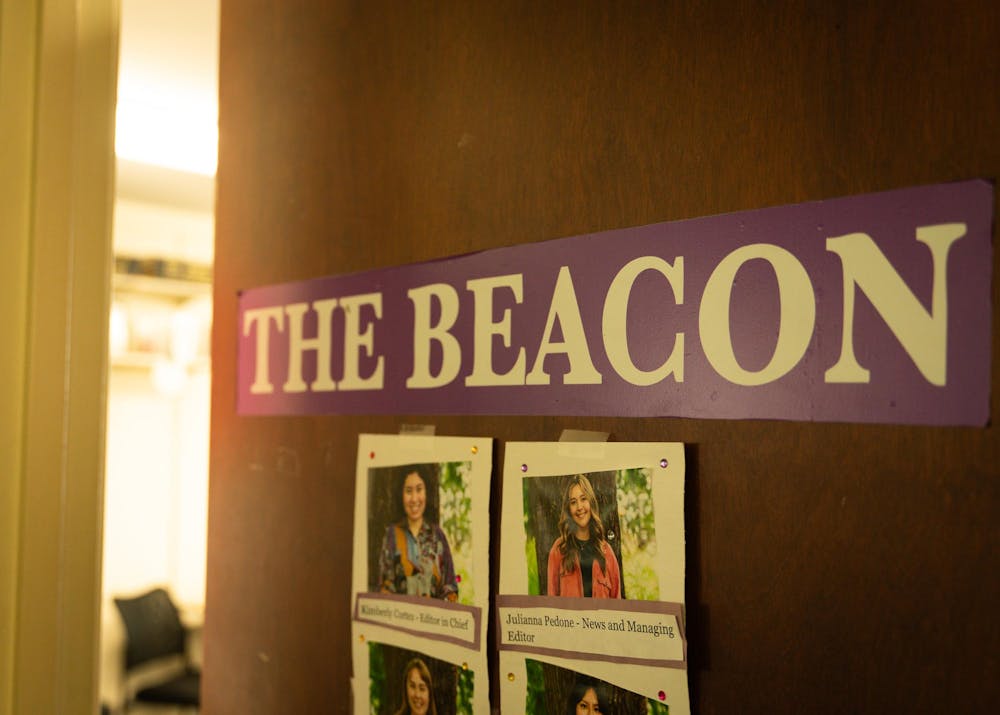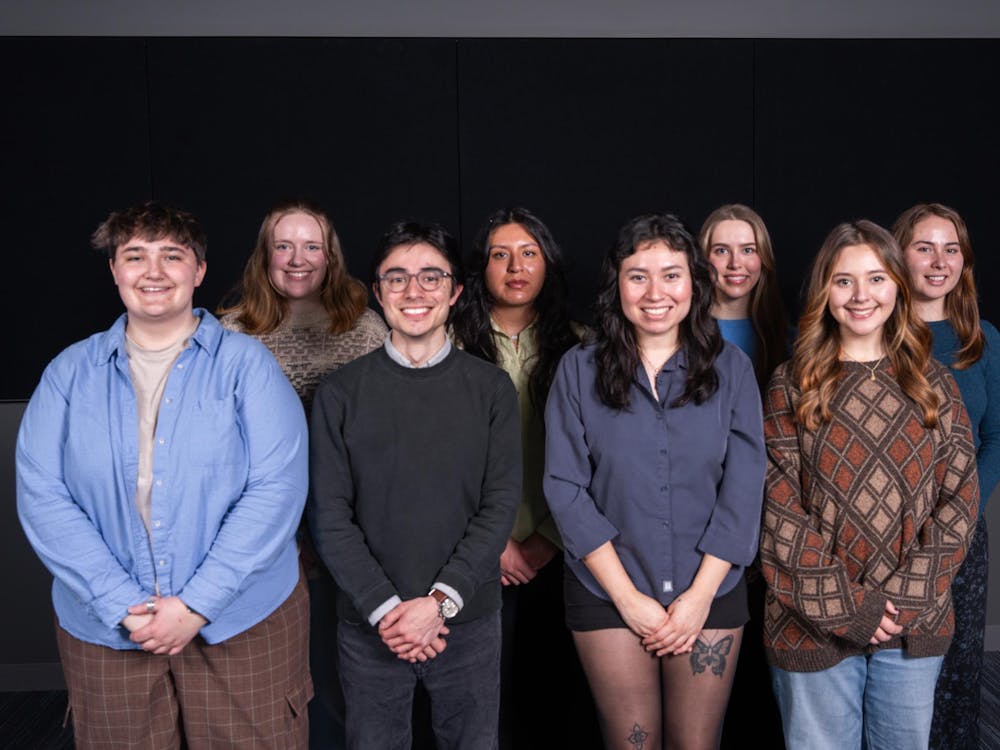The Beacon is in a transitional period. We are ushering in a new editorial board, searching for a new adviser and navigating a tumultuous federal administration and its impacts on UP.
Facing uncertainty, The Beacon remains committed to upholding and embodying longstanding journalistic practices and its mission: to seek truth and report it. But what does that actually mean in practice?
Our process and independence
The Beacon is entirely independently student-run. The University of Portland is the official publisher of The Beacon. No other body or individual within or outside of the University has influence on our operations or what we publish. Our editorial board of eight undergraduate students makes all decisions regarding what we report, write and publish.
The editor-in-chief, who holds the highest position on staff, is appointed by the president of the University, who makes the decision based on a recommendation from the Presidential Advisory Committee on Student Media. This committee comprises faculty and staff who base their recommendation on the student’s experience, interview and application. Our adviser and staff have no say in this process.
Every Beacon staffer is a student employee. They all receive a stipend of different amounts depending on their position. Unlike other student organizations and other student-run papers, we are not funded by our student government. The Associated Students of The University of Portland (ASUP) does not allocate any money to The Beacon. The Beacon is funded by the University.
However, University funding does not influence or impact our coverage, and not all has been positive. We have covered low turnout in ASUP elections, a shrinking social work department, amending UP’s nondiscrimination policy, safety concerns off campus, on-campus living conditions and non-inclusive behavior.
But we also highlight university successes in academics, athletics, innovative student projects and leaders, new resources and artists.
Why we cover what we cover
The Beacon holds two weekly meetings: one to pitch stories, and another to discuss what we’ve published over the week. Staffers pitch two to three story ideas they think are worth covering, and editors assign stories to their sections.
Before assigning a story, we consider its relevance to the UP community, how many stories are currently being written and time constraints. We also consider staff availability. The majority of our staff are full-time students, and some hold more than three jobs at a time while balancing Beacon work.
The ethics we follow
The Beacon follows the Society of Professional Journalists (SPJ) Code of Ethics, a guide journalists follow to guarantee that their work meets the ethical standards of journalism.
As journalists, we don’t just publish rumors or gossip. Our work follows the principles of seeking the truth and reporting it, minimizing harm, acting independently and being accountable and transparent.
To do so, we are responsible for fact-checking, interviewing and research.
Our limitations
But now, there are factors outside of our control affecting our coverage.
News organizations are being barred from the White House. University social media accounts are being combed, entire phrases are disappearing from academic research databases.
Student media is not immune to these pressures.
On April 4, the Student Press Law Center (SPLC) issued an alert to all student newsrooms in the U.S. urging them to review takedown and anonymity policies, communicate with sources and readers about the risks of anonymous bylines and train their staff to understand the legal and personal risks of working in student media.
Universities across the country are being advised by attorneys to keep a low profile. The legal basis the Trump administration is using to cancel student visas or target international students is murky, and that ambiguity creates real fear.
The question is no longer just what we should publish — it’s what we can publish.
We continue to report because we know the truth still matters. But we do so with growing awareness that each story carries weight and permanency beyond the page.
What we publish may affect whether a student can remain on this campus.
In seeking the truth, we must also consider the potential harm that the truth carries. Our campus can be a safe space for students, and responsible reporting means respecting that space while delivering important stories with care, sensitivity and consent.
Have something to say about this? We’re dedicated to publishing a wide variety of viewpoints, and we’d like to hear from you. Voice your opinion in The Beacon.








